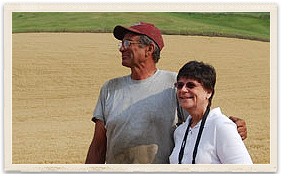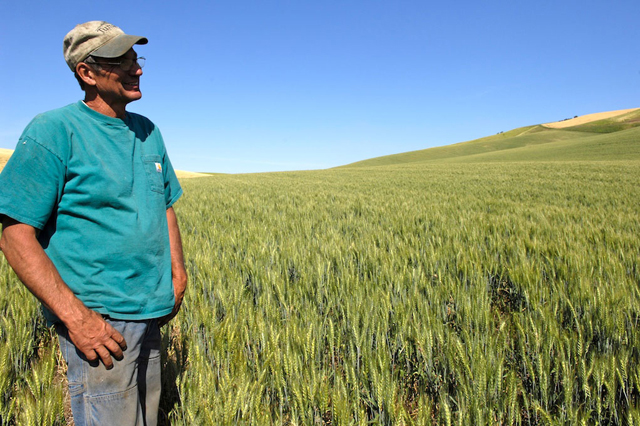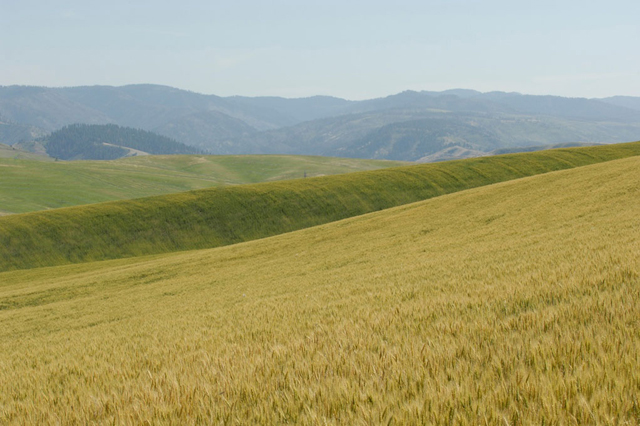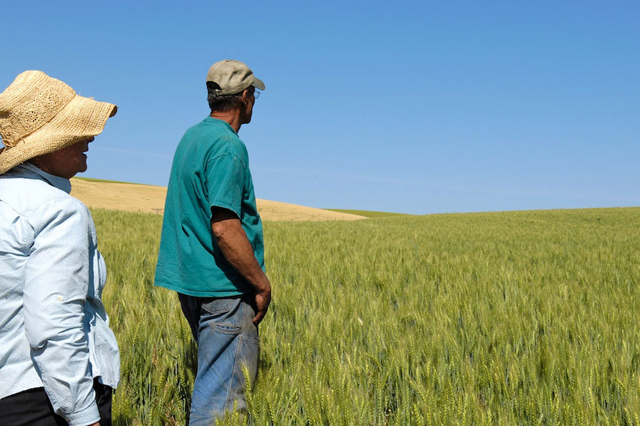Our Family of Farmers

Eric Thorn
in Dayton, WA
Generation
We are 4th generation farmers caring for the land and producing for 13 different families.
Farm History
My great grandfather Solomon Cross homesteaded in 1871. Each generation has added acreage to the farm. My father and mother were the first generation to make soil conservation and soil building business priorities by utilizing annual cropping, rough tillage, uphill plowing, long-term alfalfa/grass rotations and strip farming. Our generation is taking the next step, making minimum disturbance no tillage a practical reality. We experimented with no-til in the 1970's and 1980's, committed to transition the entire farm to no-till in 1996 and have been 100% no-til since 2000.
Farm Future
Our hope for the future is to build a stable farm entity to pass on to our children which produces the highest quality nutrient rich grain while pioneering no-tillage techniques that enable future generations to experience soil stability, fertility and productivity only dreamed about today.
Why No-Till?
With a comprehensive conservation system, we were fairly successful controlling erosion in our own fields. However, before adopting a strict no-til program, run-off from public roads caused severe soil erosion problems. Now we welcome the run-off water as it soaks into the soil rapidly without causing ditches. We no longer dread heavy rain or cloudbursts either. People in Dayton living downstream from our farm used to be required to buy flood insurance. Because of our farming practices that area of town has been removed from flood plain designation.
What challenges have you faced?
No-till isn't always "pretty". Until crops get tall enough to show above stubble, our fields look like scruffy coyotes. We had to overcome the stereotype that "best farming practices" meant picture perfect swathes of deep green and neatly turned earth. The biggest challenges converting to no-till, however, were identifying the best weed and disease control practices and implementing the optimal crop rotations for our conditions. Another challenge is making the no-till drill work efficiently with less maintenance.







